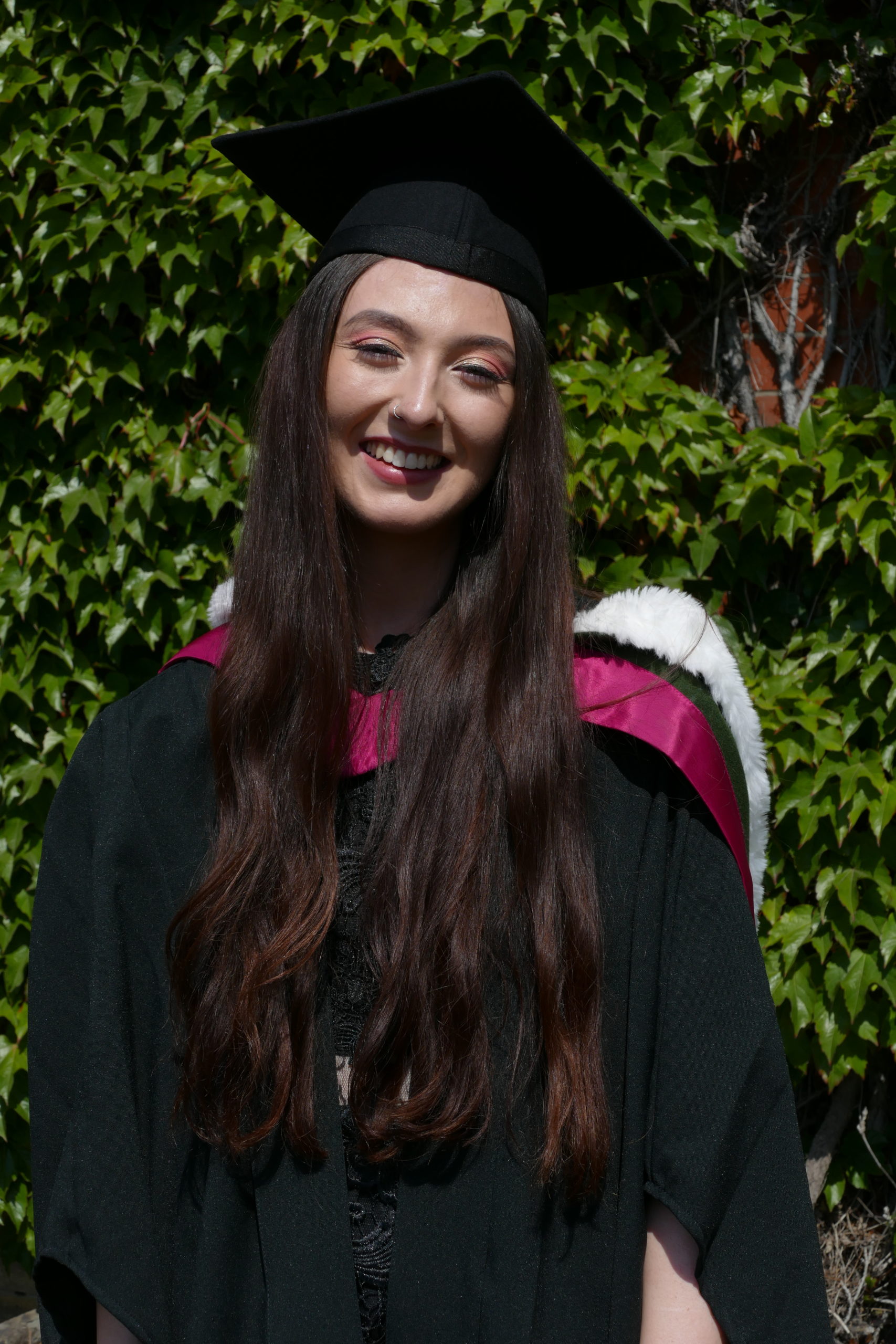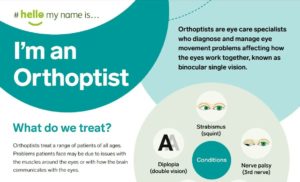Name: Alisha Bycroft
Role: Orthoptist


Alisha Bycroft
Whilst taking my GCSE’s I already knew I wanted to go into a healthcare career but I wasn’t aware of any careers other than nursing, medicine and dentistry so initially I was interested in dentistry.
I always enjoyed Maths and Science and took Biology, Chemistry and Physics for my A levels and completed an AS in Maths. I enjoyed my subjects but it was hard!
When it came to applying for University I sent in applications for Dentistry initially but I was unsuccessful which lead me to reconsider my options and look into other healthcare careers.
The University of Sheffield offered me the choice to send my application to be considered for an alternative course and this is when I discovered Orthoptics and I immediately thought this is the right course for me.
I saw an Orthoptist as a child so I knew what the job entailed and became really interested in the course. I sent in my application to Sheffield, had an interview and got accepted!
Seeing such a broad range of patients daily on placements and realising how much your work can help people were the best part of studying this course
I didn’t know what to fully expect starting a healthcare course, I always liked the idea of a vocational type degree and getting to learn the job as you go.
I had researched the roles of Orthoptists a bit more so had an idea of what I would learn about and during the interview day the University gave tours with current students which really helped me get more of an idea about the course and the profession.
Placements were such a great part of the course, it helped me gain so much more confidence in my clinical ability and the experience of learning in a variety of different hospitals is very beneficial.
Having the practical experience is also really helpful with learning the theory behind orthoptics, it provides more context to what we are learning when you get to see it in practice and the importance of certain skills and knowledge.
Orthoptics is quite a small profession and this is reflected in the course size, there were about 30-40 in my year, it means unlike some other courses you get to know all your lecturers really well!
Studying Orthoptics helped me gain so much confidence and find a job I genuinely love doing. Seeing such a broad range of patients daily on placements and realising how much your work can help people were the best part of studying this course.
Studying Orthoptics helped me gain so much confidence and find a job I genuinely love doing
My day to day at Uni was very manageable I found, coming from A-levels which I found very intense. University was a lot better for me to create a good work life balance whilst studying for a job I was excited to do.
Like most healthcare courses there are more contact hours than some other course types, typically I would have lectures 4-5 days out of the week but they wouldn’t take the full day, sometimes just the morning or afternoon or with some gaps between.
This meant there was plenty of time in between to catch up on lectures, revise and complete any assignments at the time. I typically kept to a 9-5pm routine and this worked really well for me and I had plenty of time to socialise!
Placements are a little different, most clinics work 9-5pm and then I would spend a little time in the evening doing any revision/assignments if needed.
Placements are great as in Orthoptics, you can be sent to anywhere in the UK for these so you get to spend a bit of time in a new area and are usually sent with a placement buddy and all travel and accommodation costs are reimbursed through the NHS Learning support fund.
My placement locations included: Bedford, Great Yarmouth, York, Nottingham, Newcastle, Chester and Cambridge. Different hospitals can have a variety of clinics, standardly paediatric and adult clinics.
Orthoptists can specialise and run other clinics such as stroke clinics, neuroophalmology clinics and child development centre clinics as well as undertaking extended roles.I came across quite a few of these on placement including: injections for age related macular degeneration, glaucoma clinics and minor operations.
During my 3rd Year of University I decided to apply for the Council of Deans 150 Leaders programme. This was a big thing for me as I usually wouldn’t put myself out there for programmes like this.
I got accepted and from this programme I met so many amazing healthcare workers and leaders in the healthcare profession. I created an Orthoptics careers promotion poster in collaboration with the British and Irish Orthoptic society and presented this at the annual Chief Allied Health Professions Officers conference.

This has opened up so many paths for me to help with Orthoptics promotion and hence this piece for Aspiring Allies.
I am starting my first job as an Orthoptist next month and I am so excited for my future in Orthoptics!
Want to learn more about the role of an Orthoptist? Where can they work? What specialisms?
Learn more